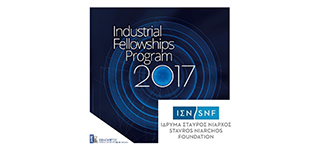Rapid and Accurate Detection of Bacteria in Water using microfluidics technology
https://industrial-fellowships.demokritos.gr/about-the-program/

LEADER:
Angeliki Tserepi
START DATE:
01/08/2018
LATE DATE:
01/08/2021
FUNDING SOURCE:
Stavros Niarchos Foundation